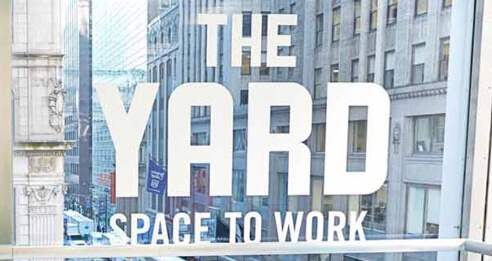
Largest Coworking Companies


The rise of technology has influenced many spheres of business. Commercial real estate is one of them, and it has undergone a lot of changes in recent years. There has been a marked tendency towards more flexible and optimized spaces which deconstructs the idea of the traditional office. The economy today is more innovation-oriented than manufacturing-driven. Legacy spaces are not always suitable for today’s needs.

Traditional offices have recently been superseded by coworking spaces which have proliferated all over the world. Because their core idea is based on the creation of a thriving community and fostering networking, such offices are becoming more and more popular among millennials and, thus profitable for their owners. Not only is it a great choice for small and growing businesses but also the concept of shared spaces is chosen by big corporations. The latter often set up innovation labs within the walls of shared space venues.
The rising popularity of coworking is attributed to the rising demand of the millennial generation because it allows a perfect balance between work, play, and entertainment in one location. It also influences the areas of brokerage, facilities management, project management, and networking.

A change in the commercial real estate scene can be observed in the recent saga with the Manhattan office space business. On September 17th, WeWork published a blog post on their website to announce the signing of a 58,344 square feet lease at 21 Penn Plaza. This deal made WeWork the largest private occupier of office space on the island.
It took the company only eight years to take over the JPMorgan – the largest U.S. bank by assets. Today WeWork has more than 50 locations in Manhattan to provide workplaces for various businesses. Moreover, earlier this year it has also become the largest private office space occupier in London and Washington DC. WeWork once started with just one floor in Soho, and now it is the biggest coworking space provider in the world with over 300 locations in 87 cities in 23 countries.
This case shows how big and promising the concept of coworking is. The number of coworking locations will only grow in the future. There is no denying the fact that coworking will keep changing commercial real estate across the world.
Coworking means sharing. But it does not just stop at sharing the workspace. Costs associated with electricity, security, the Internet, etc. are divided between all of the tenants of a coworking space. This works beneficially for all parties involved.
Compared to renting a regular office, a coworking space offers a cheaper alternative to traditional offices for freelancers and companies. At the same time, business operators overall earn more on facilities management service despite charging a low cost per client.
A lot of coworking spaces apply smart technologies when designing and building a venue. A lot of processes are becoming automated from visitor management and heating to cloud access control and cutting-edge security. This makes coworking spaces not only more attractive to professionals but also sustainable and forward-thinking.
Coworking space agreements are usually less complicated than the traditional ones. They are flexible and allow short-time leasing. There is a possibility to rent a working space even on an hourly basis. This is a definite advantage for fast-growing businesses. As they develop, they make use of the scalability offered by coworking spaces.
Brokers might become less influential in the future, as the relationship between a space provider and a client will be a direct one. Brokerage might shift towards advising, as it is expected that there will be a reduced number of long-term leasing agreements.
A workplace of the future is more than an office. It can offer a working space, a communal area, a coffee shop, a kindergarten, and a gym. It is flexible, it is attractive, and it boosts creativity. And that’s what the generation of millennials needs. They are not bound by the 9 to 5 rules. They value money and the freedom it gives, and they cherish when work and leisure can be combined.
Because coworking venues are pre-furnished, well-maintained and have all the facilities included in the price, companies should not worry about spending a fortune on fit-outs and improvements which they otherwise would have to go through in case of leasing a traditional office.
These days, there’s a rapid growth of agile real estate. Coworking is taking deep root all over the world. This tendency impacts commercial real estate in many ways, from new leasing models to use of cutting-edge technologies.
Save your community manager 41 hours each week—learn how The Yard did it with cloud-based access control.
Read the Case StudyThe Guide to Make Your Space More Profitable
Including interviews with experts and consultants.
Free access to our best guides, industry insights and more.
